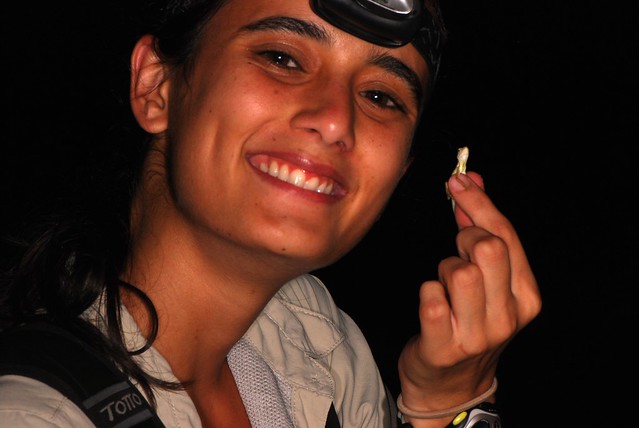Posted by Erik Svensson
There are moment's in a senior researcher's career which are especially nice. It can be when one get's a paper accepted. Or when some of your PhD-student's defend their thesis. Or when the student obtain a postdoctoral research grant. Or when the student obtains his or her first large grant or establishes him- or herself as an independent scientist. Perhaps this latter thing is the moment that is especially nice for former advisors.
And this is exactly what has happened to Kristina Karlsson-Green, among us mostly known as "Tina", who just received a prestiguous and very competitive "International Career Grant" from the Swedish Research Council (VR). This grant amounts to 1.8 million SEK/year for a period for four years, and enables Tina to establish her own research programme at the Agricultural University in Alnarp, where she is currently located, after her first postdoc in Finland in the laboratory of Anna-Liisa Laine.
I feel extremely priviligied to have had so great PhD-students, who have seldom made me disappointed, and who have clearly shown their independence by establishing themselves in the extremely competitive science world. Today I am very proud and happy that Tina can continue her research career - to the benefit of both herself, her current colleagues and to the joy and happiness of myself and all her former research colleagues in EXEB.
Well done Tina! You rock!



